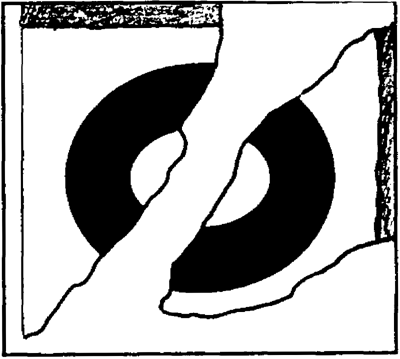Sealing Odd-Shaped, Fragmentary Paper Pieces in a Mylar (Polyester) Encapsulation
by Susan M. PeckhamOdd-shaped or fragmentary paper pieces tend to shift in their polyester encapsulation. Here is the technique developed by Irene Brückle at the Art Conservation Department, Buffalo State College, to prevent such movements. This method involved the use of a heat welder employed to seal the edges of polyester encapsulations. For the paper pieces that were lined initially, a margin of Japanese tissue was left along one (long) side. For an unlined paper piece, a Japanese tissue margin can be attached along one (long) side. The edge of the Japanese tissue margin was prepared by water-tearing it in a straight line. The grain of the paper should run perpendicular to the torn edge. Very long fibers were trimmed along this edge. The paper pieces were positioned between two polyester sheets so that the feathered Japanese tissue edge lay approximately 0.5 mm recessed from the polyester edges. The polyester sheets were welded, trapping a few Japanese paper fibers in the melted edge (fig. 1). Only the very tips of paper fibers were sealed between the polyester to prevent scorching the fibers and to keep the welded edge smooth. The paper pieces are easily removed from their encapsulation by cutting off the welded polyester edge.
Fig. 1. Two fragments are held in place within a polyester encapsulation. Shaded areas represent the margins of Japanese paper fibers welded into the top and right edges.
The heat welder, MSG 2600 Polyester Sealer, product no. 1005, is available from MuseuM Services Corporation, 1107 East Cliff Rd, Burnsville, MN, 55337. The telephone number is 612/895-5199.
Susan M. PeckhamArt Conservation Department
Buffalo State College
Publication History
Received: Fall 1999
Paper presented at the Book and Paper specialty group tips session, AIC 27th Annual Meeting, June 8-13, 1999, St. Louis, Missouri.
Papers for the specialty group session are selected by committee, based on abstracts and there has been no further peer review. Papers are received by the compiler in the Fall following the meeting and the author is welcome to make revisions, minor or major.
